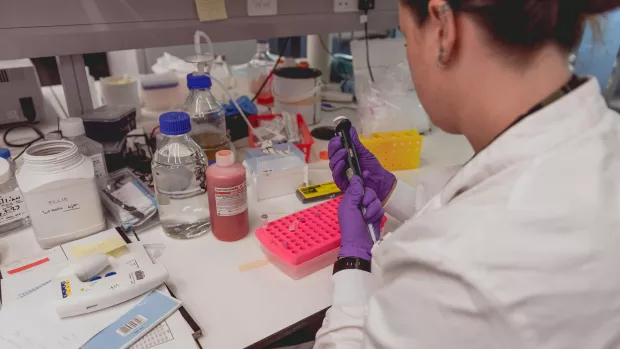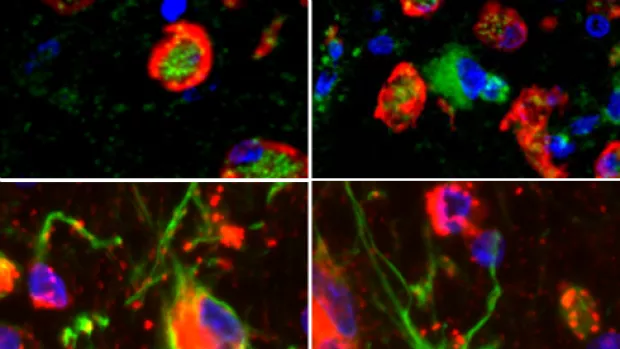Finding the master MS genes

- Lead researcher:
- Professor Stephen Sawcer
- Based at:
- University of Cambridge
- MS Society funding:
- £297,145
- Status:
- Complete
About the project
So far we've discovered over 200 genes that are linked to MS. Professor Sawcer is trying to find the key genes – called master regulators – that control the behaviour of immune cells of people with MS.
Many of these genetic changes don’t alter how a particular gene works, but instead change how much the cell uses it (this is called gene expression). Research shows that gene expression is different in immune cells from people with MS, compared to people without MS. Genes can be categorised into different networks, and a few master regulators sit at the top of those networks, controlling the expression levels of the genes below. This study aims to identify those master regulators and understand how they’re involved in what goes wrong in immune cells in people with MS.
Professor Sawcer’s team will be looking at 190 individual immune cells taken from 100 people (50 with MS and 50 without). They’ll identify which genes are being activated in each cell and how much, creating a gene expression map. Once they have a map for each of the 19,000 cells, they’ll start grouping together cells that have similar gene expression maps.
This will build a network of groups of immune cells and gene expression maps, from which they hope to be able to identify key genes that stand out as being master regulators. By finding those master regulators, researchers may be able to develop drugs to target them and restore normal gene expression in immune cells.
How will it help people with MS?
Understanding the role that genetics plays in the development of MS is crucial in our efforts to finding out what causes MS. Although many genetic changes have been identified to date, there isn’t one genetic change that stands out as being more influential than the rest.
If Professor Sawcer’s team can find master regulators that control gene expression levels in immune cells, this information could be used to develop new drugs and identify individuals that could benefit from particular treatments. By doing so, researchers could move forward into a new, more personalised approach to treating people with MS.
The difference you can make
Improving our understanding what causes MS will help us move forward towards a better future.




